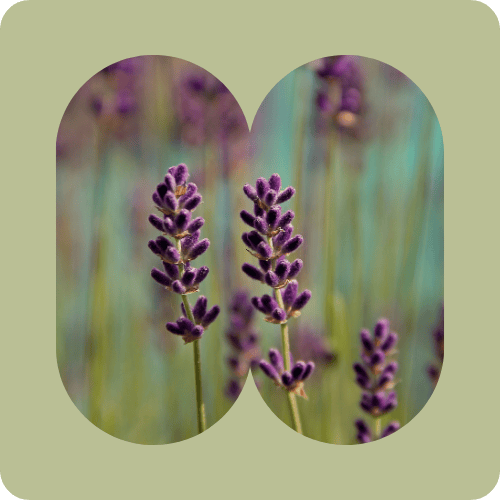Federal Elections 101: What Actually Happens During a Federal Election
Author
Anna Huschka
My name is Anna (she/her), and I am a white settler located on the lands of the Williams Treaty First Nations – the Alderville First Nations, Beausoleil First Nation, Chippewas of Georgina Island, Chippewas of Rama, Curve Lake First Nation, Hiawatha First Nation, and Mississaugas of Scugog Island. I do not intend to speak on behalf of any communities I am not a part of. I hope to leverage my position of privilege as a cisgender white woman to amplify the efforts and voices of those doing so much work towards climate justice in their communities across the country. I want to be a part of challenging the Euro-settler-centric and Western values that currently shape climate policies, to counteract colonial and systemic barriers, ensuring that the concerns, exposures, and knowledges of diverse communities are adequately incorporated into environmental policies and projects. As a part of the Shake Up Your Community project, I hope to help support climate work at all scales and showcase the community-based efforts that have developed out of necessity of addressing the issues of climate justice. As a biology major and politics minor, my passion for environmental politics developed from a sense of urgency and anger about the lack of action by decision-makers to adequately address the climate crisis. I aim to hold decision-makers accountable to climate commitments as well as diversify what is currently Canada’s political climate by identifying gaps in policies and projects by responding to calls for public feedback. Through the Righting History Project, particularly Practicing Rest, Recovery, Resistance: An Interactive Dreaming Journal, I hope to help youth see that their existence, and any contributions they make to the climate movement as a whole, regardless the scale, are beautiful acts of resistance to our colonial, capitalistic society.

General Terminology:
- Riding: The voting regions, in which individual representatives are elected, forming the legislature (1).
- Governor General: Acts as the representative of the British monarchy in what is currently Canada. What is currently Canada is a constitutional monarchy, and while the Queen plays no real role in our democracy nor our parliament anymore, the Governor General acts as their representative. For this reason, they hold important powers such as officially commencing elections since these orders previously required Britain’s approval (1).
- Chief Electoral Officer: “Responsible for the administration of elections, referendums and other important aspects of our electoral system” (2). They are independent of the government and all political parties, and report directly to Parliament (2).
- Writs: Formal documents drafted by the Chief Executive Officer and sent to the Election Officers in each riding, indicating that they should start an election (3)
Elections are scheduled for the third Monday of October in the fourth calendar year following the previous election but can occur sooner in either of the following cases (3):
- The Governor General can dissolve parliament on the advice of the Prime Minister and set the election date (3). The Canada Elections Act (section 57) specifies that the election period must be a minimum of 37 days and a maximum of 51 days, inclusive of the day the writs drop and Election Day (3).
- The current government can be made to resign and parliament dissolves via a failed confidence vote, in which the governing party loses the support of the representatives House of Commons, expressed in the failed passing of a confidence motion (4). Confidence motions include: motions that specifically say that the House of Commons does or does not have confidence in the government, motions made confidence votes by the government, proposed budgets, the government’s reply to the throne speech, and motions from the opposition proposing changes to legislation or explicit motions of non-confidence (4).
Stages of an Election:
- Pre-Writ Period: The time leading up to the commencement of an election period in which parties start behaving as if the next election is impending (1).
- Dissolution of Parliament: The Governor General dissolves parliament on the advice of the Prime Minister and directs the Chief Executive Officer to issue the writs (5).
- Dropping the Writs: The writs are dropped by the Chief Executive Officer, formally telling “the election officers in each riding to hold an election” (5).
- Nomination of Candidates: Political parties choose their candidates for each riding after the writs are dropped (5). Candidates can run as independents without party affiliation (5).
- Campaigning: The campaign period is anywhere from 37 to 51 days long, from the day the writs drop to Election Day, and consists of candidates encouraging voters to vote for them (5).
- Air War: Each party tries to “control the media airwaves”, including TV, radio, and other forms of media advertising (1)
- Ground War: Candidates are competing for the seat representing their riding, interacting with the voters through door-to-door and phone campaigns, in order to obtain their support (1)
- Phony War: Campaigns beginning, platforms are finalized, and leadership candidates are travelling to different ridings in order to connect with voters (1)
- Leadership Debate: An event organized by the Leader’s Debate Commission providing voters the opportunity to hear the candidates for Prime Minister discussing their party’s policies and position on different topics (6).
- Post-Debate Period: Eligible citizens solidify their voting choices as candidates intensify their campaigns to prove why they should be elected, and aggressively target opponents to garner the support of undecided voters (1)
6. Voting: Eligible citizens vote for the representative of their choosing to represent their riding in the House of Commons. Voting happens via advance polls, by mail, on election day, or at an Elections Canada office (5). For more details on being an informed voter, including how to make sure you’re registered, click here.
7. After the Vote: Votes are counted and validated, the winning candidate is established based on which party wins the most ridings, the election concludes and parliament resumes. (5)
References
- 1. Marland, A., Wesley, J.J. Inside Canadian Politics. Canada: Oxford University Press; 2016. 413, 414, 416, 420
- Elections Canada. Appointment of the Chief Electoral Officer [Internet]. Canada: Elections Canada; [updated 2020, May 12 ; cited 2021, April 12]. Available from: https://www.elections.ca/content.aspx?section=abo&dir=ceo/app&document=index&lang=e
- Elections Canada. FAQs on Elections [Internet]. Canada: Elections Canada; [updated 2021, February 5 ; cited 2021 March 26]. Available from: https://www.elections.ca/content.aspx?section=vot&dir=faq&document=faqelec&lang=e#a10
- House of Commons. Parliaments and Ministries: The Confidence Convention [Internet]. Canada: House of Commons; [cited 2021, March 26]. Available from: https://www.ourcommons.ca/marleaumontpetit/DocumentViewer.aspx?Language=E&Sec=Ch02&Seq=3
- Elections Canada. Elections Step by Step [Internet]. Canada: Elections Canada; 2021 [cited 2021, March 26]. Available from: https://electionsanddemocracy.ca/canadas-elections/canadas-election-process/elections-step-step
- Government of Canada. Leaders’ debates [Internet]. Canada: Government of Canada; [updated 2020, June 01 ; cited 2021, April 01]. Available from: https://www.canada.ca/en/democratic-institutions/services/leaders-debates.html



